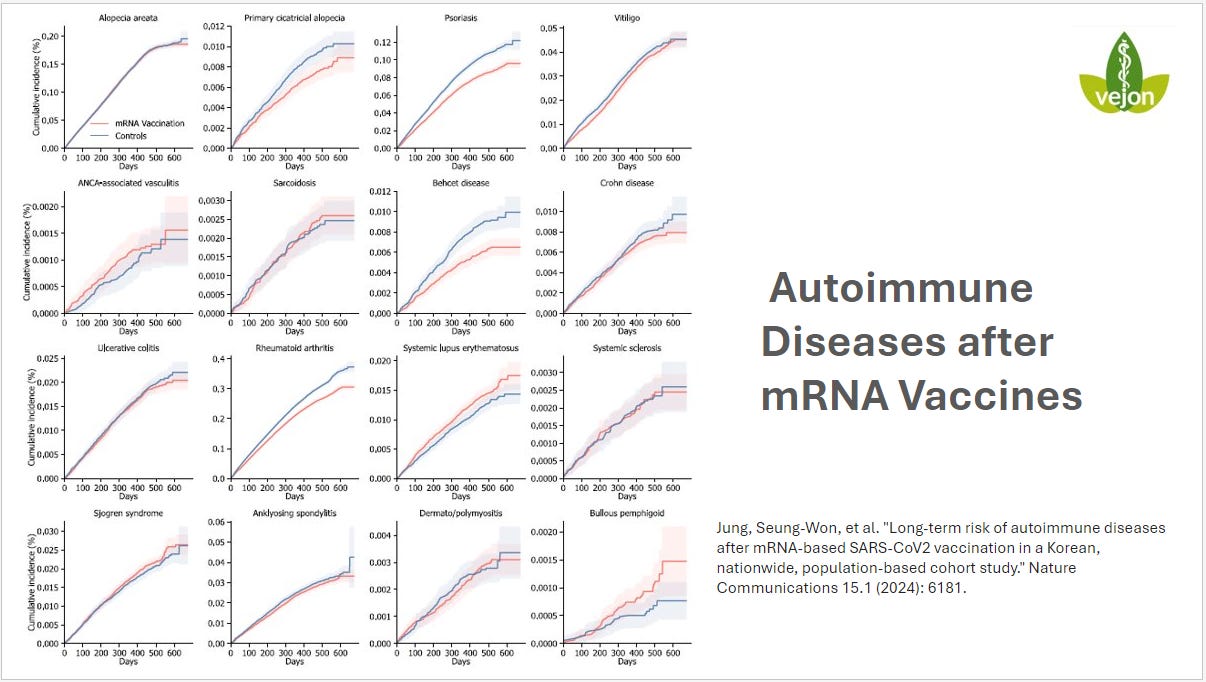This question has been on my mind for a while. The cytokine storm, which is an overreaction of the immune system, is a key factor in severe COVID-19 cases. Steroids and other immunosuppressants work well in managing this inflammation. So, I started wondering if the reduction in severe COVID-19 cases post-vaccination might be due to an immunosuppressive effect of the vaccines rather than a direct antiviral action.
To dig deeper, I looked at a comprehensive study from South Korea, involving around nine million individuals. This study examined the long-term risk of autoimmune diseases following mRNA COVID-19 vaccination. Surprisingly, it found no significant increase in most autoimmune diseases, except for a slight rise in systemic lupus erythematosus (SLE) and a few other conditions like alopecia areata, psoriasis, and rheumatoid arthritis. This made me question the mechanisms at play and whether the vaccines could be acting as immunosuppressants













